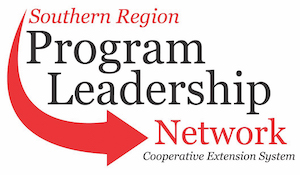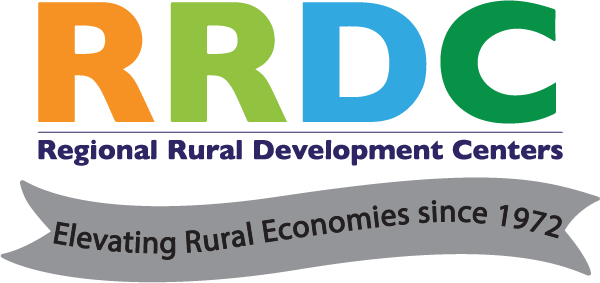Expanding Opportunities and Access
The RRDCs have several initiatives underway to expand opportunities and strengthen engagement—from facilitating collaborations with land-grant institutions to supporting stakeholder training in constructive dialogue and community engagement.
Heirs’ Property Resolutions and Prevention
The USDA defines heirs’ property as land that has been passed down informally from generation-to-generation. In most cases, it involves landowners who died without a will. Heirs’ property is land owned “in common” by all of the heirs, regardless of whether they live on the land, pay the taxes, or have ever set foot on the land.
Geographic areas heavily impacted:
- Appalachia
- Colonias of South Texas
- Mississippi River Delta Region
- Native American Tribal Lands
- Southern Crescent Region (Blackbelt Region)
Heirs’ property is a significant cause of land loss. To address this concern, a team of leading educators in the field have designed a three-part training program to help community members take action to protect their lands. The three sections walk participants through an overview of heirs’ property, strategies for preventing heirs’ property, and key considerations in resolving heirs’ property. The National Policy Research Center at Alcorn State University, the Southern Risk Management Education Center (SRMEC), and the Southern Rural Development Center (SRDC) are anchor partners in the effort through funding from the USDA National Institute of Food and Agriculture (NIFA), the Farm Service Agency, and the National Resource Conservation Service.
Target Audience: The train-the-trainer workshop is designed for Land-Grant professionals who will, in turn, use the materials to provide training to families and communities in their home states.
Learn more here: https://srdc.msstate.edu/programs/heir_property
1862 and 1994 Land-Grant Institution Collaboration
The RRDC in the North Central region (NCRCRD) continues to facilitate collaborations between 1862 and 1994 Land-Grant Institutions. Outcomes include:
- The project of NCRCRD’s inaugural Fellow, Stephen Gavazzi, Ph.D., with The Ohio State University, resulted in the creation of an online resource that serves as a unique inventory of 1994-1862 Land-Grant partnerships.
- The partnership with Dr. Gavazzi led NCRCRD to support and facilitate a session at the NIFA-funded First Americans Land-Grant Consortium (FALCON) Post-Conference Workshop in 2022 and a pre-conference in 2023. These events focused on 1994 land-grant teaching, Extension programs, and research that benefit Native American students, communities, governments, and lands. At this post-conference, NCRCRD introduced the 1994 Land Grant Innovation Grant which specifically aims to strengthen the ability of North Central Region Land-Grant institutions to enhance the quality of life for 1994 Land-Grant stakeholders. The first LGIG grant was awarded to Turtle Mountain Community College in 2023.
- More recently, the NCRCRD was selected to serve as the evaluator of USDA-NIFA’s New Beginnings for Tribal Students program.The NBTS program makes competitive grants to Land-grant universities to assist in supporting Tribal students on their path to higher education. NBTS aims to help increase the retention and graduation rate of Tribal students attending 1994, 1862, and 1890 Land-grant universities.
Over the next five years, NCRCRD will assist USDA-NIFA in identifying and assessing barriers by compiling and analyzing data collected through NBTS project directors on the program’s challenges in recruiting and retaining students, as well as other factors contributing to student success. In addition, NCRCRD will collect programmatic data to ensure Congressional objectives for NBTS are being met and provide recommendations to overcome identified barriers.
1890 and 1862 Cooperative Extension Service Partnership Strategies
 Cooperative Extension Service leaders in the South are joining with the RRDCs in exploring opportunities to better align efforts across the 1862 and 1890 systems, including collaboration through the Southern Region Program Leaders Network. Furthermore, through a dialogue-to-change model, these leaders have been thoughtfully considering action steps in a collaborative manner. Recent efforts include a survey and interview initiative to document and draw lessons learned on collaborations that work between 1862 and 1890 universities.
Cooperative Extension Service leaders in the South are joining with the RRDCs in exploring opportunities to better align efforts across the 1862 and 1890 systems, including collaboration through the Southern Region Program Leaders Network. Furthermore, through a dialogue-to-change model, these leaders have been thoughtfully considering action steps in a collaborative manner. Recent efforts include a survey and interview initiative to document and draw lessons learned on collaborations that work between 1862 and 1890 universities.
Undergraduate Leadership Development
Collaborating with the Mississippi State University Honors College and the multi-institutional Delta Directions Consortium, the RRDC in the South assists with programming for the Delta Scholars Program, an undergraduate leadership development initiative that advances public service, including the areas of public health, social sciences, and law and policy.
Building Capacity to Advance Economic Opportunity
Digital Skill Building and Digital Volunteer Initiative
Program Overview
Building digital literacy skills is a vital component in the effort to make Internet resources more available and equitable. The Digital Volunteer Initiative seeks to build these essential skills to help advance quality of life through the resources available through the Internet.
The Digital Volunteer Initiative seeks to:
- Increase the percentage of adults volunteering in digital literacy within their communities
- Grow the number of digital literacy services in each community
- Leverage Extension's educational programming
- Convene community partners and strengthen collaboration
- Enhance self-efficacy and/or comfort with digital skills among key groups in a community
- Strengthen social and community connections
- Provide guidance on cybersecurity and securing online financial transactions
Digital Skills Lessons strives to guide and inform participants so that they may:
- Navigate the digital landscape responsibly
- Feel empowered to access online information safely
- Communicate effectively
- Engage in online communities
- Enhance general computer skills
Target Audience:
Digital skill building, and the digital volunteer initiative, are relevant to all age groups who are interested in exploring opportunities to grow the digital competency of their community.
Register for access:
To access the Digital Skills Lessons and Digital Volunteer Initiative materials, please visit: https://msudafvm.co1.qualtrics.com/jfe/form/SV_0NusTke3kvRLkY6

